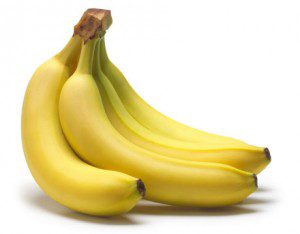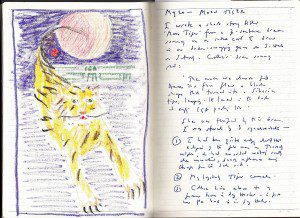 When I am asked, “What can I take to improve my dream recall?”, my reflex answer, for years, has been: “Eat more bananas!”
When I am asked, “What can I take to improve my dream recall?”, my reflex answer, for years, has been: “Eat more bananas!”
I am no expert on dietary supplements, and when I first came up with this suggestion, I was making a joke. My humor was inspired by an appearance on the Faith Middleton show on Connecticut Public Radio in which I shared the hour with a report on bananas (no kidding).
I was intrigued when a somewhat earnest man who took my banana Rx very seriously reported back that it had worked perfectly. He ate a banana around bedtime and remembered his dreams for the first time in months; the dreams were vivid and rather steamy. I took this as evidence of the power of suggestion, but was encouraged to offer the banana Rx to others demanding a quick fix for a dream drought. Not all of them reported an immediate flood of dreams, but some did.
I’ve just been reviewing some recent articles on the possible benefits of vitamin B-6 in enhancing dream recall and/or the vividness of dreams. They have me wondering whether my humorous improv may actually have been pointing in the right direction. Bananas are a good source of B-6, a member of the B vitamin family also known as pyrodoxine. There has been a theory in circulation for more than a decade that vitamin B-6 converts the amino acid tryptophan into serotonin, which helps the brain to “wake up” during REM sleep, contributing to more colorful and lively dream imagery.
The study usually cited to support this theory is old and unsatisfactory because of the small size of the survey group. It was conducted in 2002 and involved just 12 college students. Four of them were dosed with 100 mg of B-6, four with a higher dose of 25o mg and four were given a placedo, prior to bedtime for a period of five consecutive days. The test was then repeated twice, with two-day breaks for “wash out”. Those who were given the higher dosage reported the most vivid and detailed dreams, some rated high for “emotionality” and “bizarreness” over the first three days of each treatment. The tentative conclusion of the study was that vitamin B-6 may affect dreaming “by increasing cortical arousal during periods of rapid eve movement (REM) sleep”.
The Mayo Clinic lists “dream recall” and “sleep enhancement'” as possible uses for vitamin B-6, but cautions that these are “uses based on tradition or theory” rather than hard scientific evidence.
So here is my modest proposal for fresh oneiric research. If your dream life has been dull and listless, or you’ve been waking without dream recall for some time, try eating one more banana a day, preferably in the evening, over a five-day period, and see what happens.

